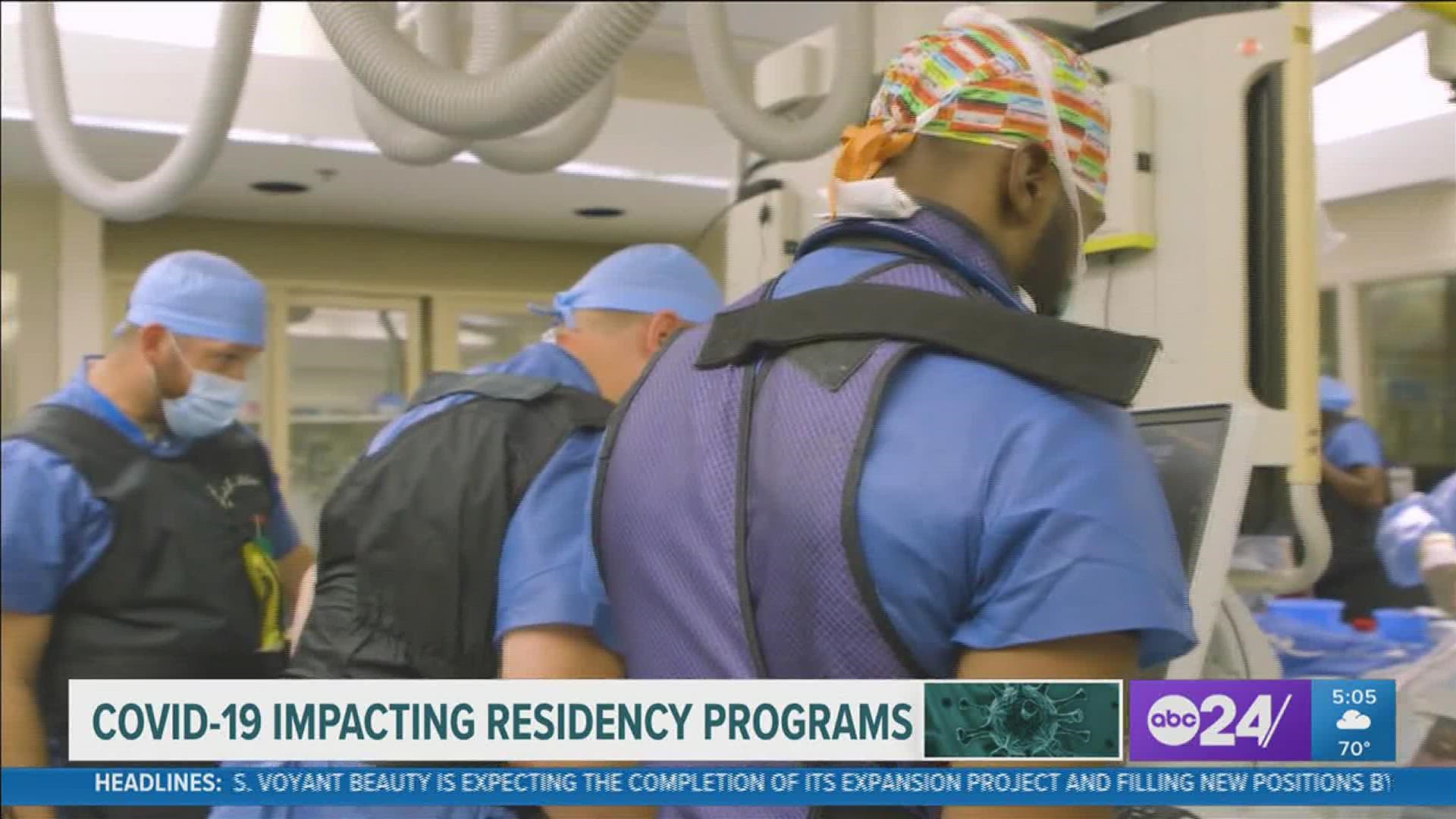MEMPHIS, Tenn. — Adjustment has been one of the repeated themes of the COVID-19 pandemic.
At hospital across the country, residency programs have had to adjust their training. But no matter what the challenge, the mission of health physicians remains the same.
“We’re here to help folks live longer, live healthier and live happier,” said Dr. Collins Rainey, Baptist Memorial Hospital’s Family Medicine Program Director.
That missioned stayed strong even when that challenge became the pandemic.
Last year, many hospitals stopped elective surgeries and procedures, impacting training programs for medical residents.
“Those experiences went away, and schedules had to be changed and adapted,” said Dr. Anne Sullivan, Baptist Memorial Education Chief Academic Officer and Designated Institutional Official.
“If they’re only getting to treat COVID, they’re not getting to learn about those diseases that they would see in non-pandemic times with the same amount of volume they would normally see,” said Dr. Rainey.
Baptist, like many other training hospitals, had to adjust.
“There’s lots of different ways of learning. There are webinars, lecture modules. We discuss cases. We have opportunities for simulations,” said Dr. Sullivan.
As COVID cases eased, there was a lot of work to be done.
“There was fortunately - or unfortunately, however you look at it - a backlog of procedural cases. You put in the hours and you get the experience,” said Dr. Rainey.
Residents had a lot of catching up to do.
“Even though the training is different, our residents, like residents all over the country, are still expected to pass their boards at the same standards that doctors have been passing them for generations,” said Dr. Rainey.
In treating COVID patients, residents have still seen it all.
“We will have a group of physicians that are incredibly well-trained in a variety of situations,” said Dr. Sullivan.
Their training is unlike any other. It has led to another adjustment focused on residents’ mental health.
“Patients die of COVID. Our residents have seen a lot of death. They’re human,” said Dr. Rainey. “Our training has been modified to include a lot more wellness time and care for our residents, talking about the effects of the kind of suffering they see and the volume they see. That’s unusual.”
It is unusual, but real. It is a new adjustment making residents better equipped for the profession ahead.
Some may wonder if residents catching up will impact doctors. Baptist said doctors have, indeed, been busy, but are fine.
The larger concern is the national shortage of nurses.

